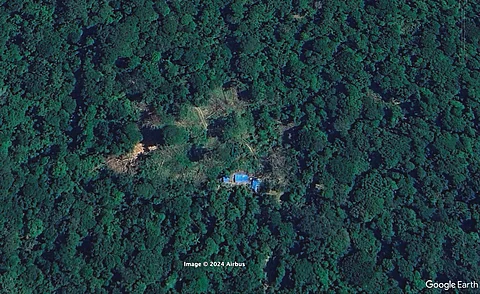

Last month, photographs and visuals of an uncontacted tribe from the Peruvian Amazon made global headlines. The Mascho Piro have now reportedly clashed with loggers, with at least three loggers wounded by their arrows, Survival International said, citing an indigenous organisation in the region.
The Federación Nativa del Río Madre de Dios y Afluentes (FENAMAD), which works in the defence of human rights and the environment in the Madre de Dios region (Peruvian Amazon), first received reports of the incident on July 27, but has made it public only now, Survival, the global movement for Indigenous and tribal peoples’ rights, told Down To Earth (DTE).
“It appears that at least one logger has been seriously wounded, and possibly two others also, by arrows fired at them by a large group — up to 100 — of Mashco Piro people,” a Survival spokesperson told DTE.
The loggers were apparently stealing timber from Mascho Piro territory along the Pariamanu river.
This site is rainforest acknowledged by the Peruvian government to be Mashco Piro territory, but which has not yet been formally protected.
Indigenous organisations have demanded the site be added to the Madre de Dios Territorial Reserve.
The site is not far from the banks of the Las Piedras river in the village of Monte Salvado in Madre de Dios region. The riverbank was where the photos of Mascho Piro people were taken last month.
The attack provides further evidence of just how important — and urgent — it is for the whole Mashco Piro territory to be properly protected, according to Survival.
“It reinforces the need for all the logging licenses in the Mashco Piro territory to be revoked, as it is impossible to protect the lives of either the Mashco Piro or the logging workers,” said the Survival spokesperson.
FENAMAD and Survival have called on the Peruvian authorities to investigate the incident properly to ascertain exactly what happened
They have also urged the government to ensure that no logging, legal or illegal, occurs inside the Mashco Piro territory, and that their full territorial rights are recognised and respected.